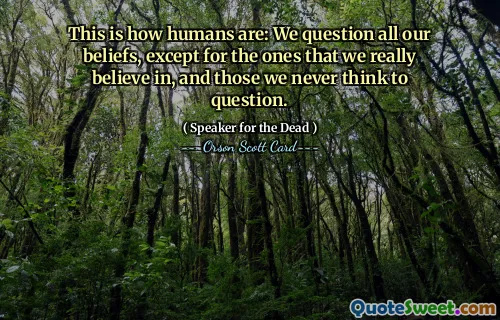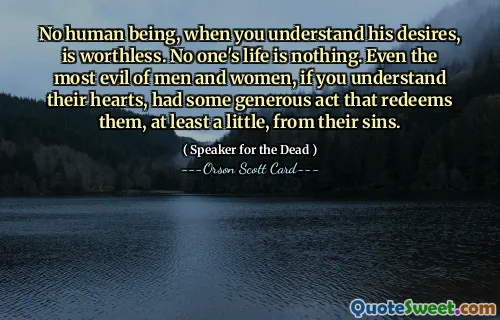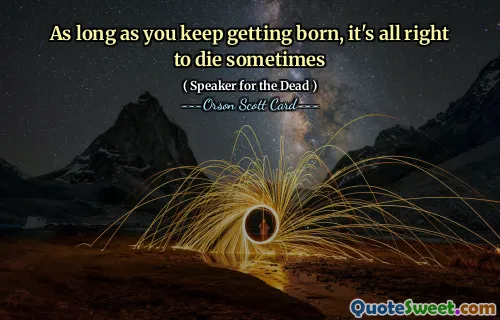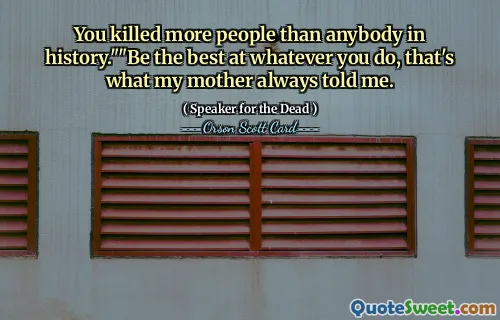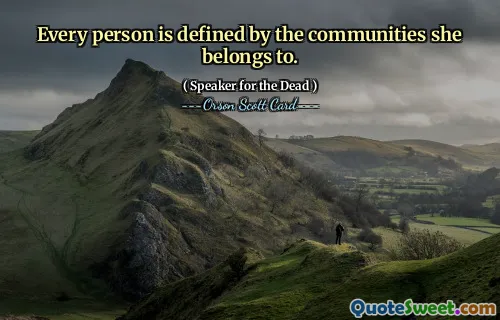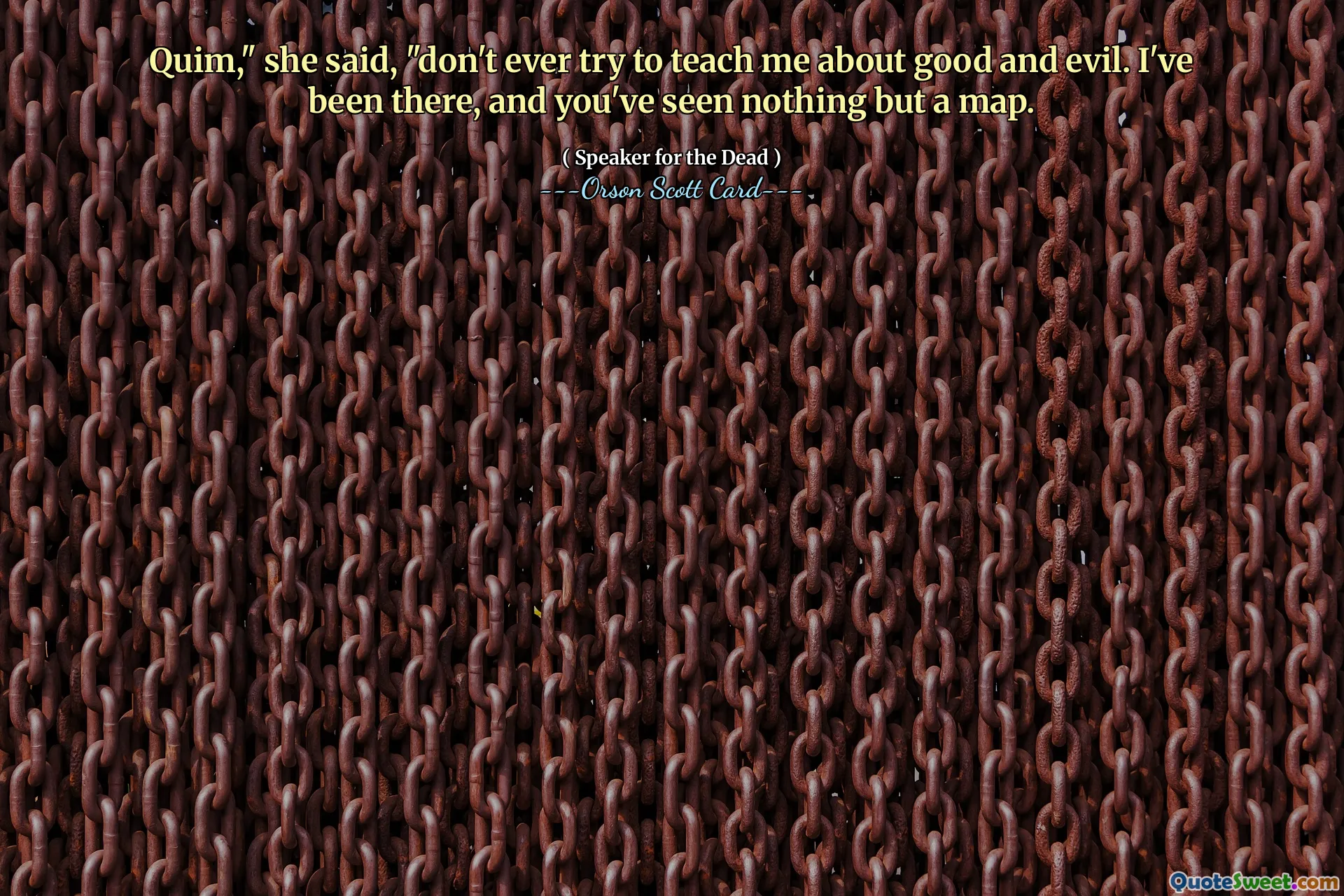
Quim," she said, "don't ever try to teach me about good and evil. I've been there, and you've seen nothing but a map.
In "Speaker for the Dead," a character confronts Quim, emphasizing that he should not attempt to instruct her on morality. She implies that her experiences have granted her a deeper understanding of good and evil, significantly more than what he can glean from mere observations. This indicates a profound personal history that shapes her perspective.
This dialogue underscores themes of knowledge and experience, highlighting the limitations of theoretical understanding when compared to real-life encounters. The statement reflects the complexities of morality as perceived through individual experiences, suggesting that true comprehension comes from lived reality rather than abstract concepts.
